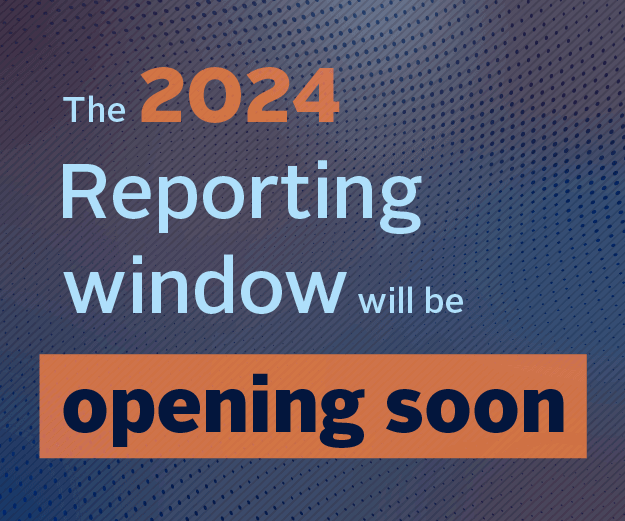By Gregory Hershman (@GregHershman), Senior Specialist, US Policy, PRI

In March, the SEC requested public input on whether it should require publicly traded companies to disclose their exposure to climate change-related risks. In response to this, the PRI surveyed its US signatories, asking how the SEC can support their efforts incorporating climate and ESG factors. Over the course of a month, 80 signatories managing over $3.3 trillion in assets responded. Their answer? Overwhelmingly, 87.5% of respondents want the SEC to establish a mandatory baseline issuer ESG disclosure to quickly provide the consistent, comparable data necessary to fully consider ESG-related risks and opportunities in investment decisions.
Notably in our survey, DSC Meridian Capital LP said mandatory ESG and climate disclosure “would provide a level of confidence in the data and enable investors to compare performance across companies and industries. Frankly, it would save us and issuers a great deal of time and resources.”
And increasingly, the lack of consistent and comparable data is documented as the central roadblock faced by investors working to incorporate ESG information in their investment practices. In PRI’s signatory survey, participants were given eight options for the largest barriers to more fully incorporating material ESG factors into investment practices. The top three barriers reported by signatories, in order, were:
- “Difficulty in comparing issuer information”
- “Lack of publicly available issuer information”
- “Issuer unwillingness to provide requested information”
These options were chosen above other barriers such as regulation around fiduciary duty or proxy voting rules and lack of tools to analyze or integrate ESG data.
In fact, investors looking to consider climate and ESG information in order to make investment decisions currently find that company websites, more than any other source such as formal, audited reports, are the best source for this information. When asked about their ability to find this information in standardized corporate disclosures, 30% of PRI signatories reported finding less than 10% of the material, necessary climate and ESG information in corporate financial statements, and a further 25% only find 10-30% of the necessary information in these standard documents. Investors rely on this information to make investment decisions, mitigate risk, and protect the investments of their clients - many of whom are retirement savers. Without access to consistent, comparable climate and ESG information, investors increasingly report they are misallocating capital, and making bad investments because of lack of data.
30% of PRI signatories reported finding less than 10% of the material, necessary climate and ESG information in corporate financial statements, and a further 25% only find 10-30% of the necessary information in these standard documents
To fix this information gap and help investors access and analyze the information needed to price in the risks of climate change, our survey participants were aligned on what the SEC needs to do. Given 14 options of the most valuable material issuer ESG information to their firm in making investment decisions, an even split between seven qualitative and seven quantitative choices, the top four selections for “most valuable material issuer ESG information” were all, in order, quantitative data on:
- Corporate actions to address climate change (such as year-over-year emissions of carbon dioxide and other core GHG emissions)
- Diversity, Equity & Inclusion policies and actions (such as diversity statistics across corporate levels)
- Current and potential future risks arising from climate change (such as scenario analysis)
- Human rights policies and activities across supply chains (such as number of contractors and contractor locations)
As to how and where this information should be presented, 77% of PRI’s survey respondents want a disclosure regime that is a combination of rules-based and principles-based information, and a full 45% want this information included in theannual 10-K financial statement and specific explanation of the data in the Management Discussion & Analysis, where corporate leadership is encouraged to help investors see the company through their eyes.
This is reflected by Rondure Global Advisors, who explained what a mandatory disclosure regime would mean for their firm’s consideration of climate and ESG information: “It would reduce the time commitment in analysis of a very nebulous topic and help us better serve shareholders holistically. It also would squeeze out many organizations that are simply trying to make money off of the subject. This is a topic we care about, but it is nebulous and dominating time. Too much information proliferation. Too many service providers. Too much fragmentation. Too much qualitative marketing that takes hours to read and adds nothing to [our] understanding of the risks and opportunities. There should be a standard source.”
The PRI’s US signatories are aligned and their message is clear: The SEC needs to establish a comprehensive, mandatory climate and ESG disclosure regulation that puts decision-useful information in one form and place, and ensures that information is accurate. Anything less would perpetuate a system that misallocates capital and leaves unmanaged investment risk for savers and retirees across the country.
This blog is written by PRI staff members and guest contributors. Our goal is to contribute to the broader debate around topical issues and to help showcase some of our research and other work that we undertake in support of our signatories.Please note that although you can expect to find some posts here that broadly accord with the PRI’s official views, the blog authors write in their individual capacity and there is no “house view”. Nor do the views and opinions expressed on this blog constitute financial or other professional advice.If you have any questions, please contact us at [email protected].














